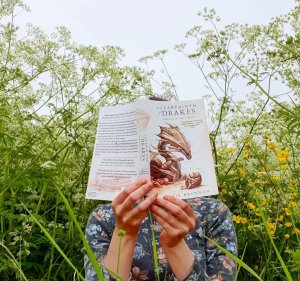
I feel like this show was successful in making this enormous and complicated story epic and successfully cramming in lots of history within these 32 episodes without making it too dense. It was rather thrilling thing to watch from start to finish. There seems been put quite a bit of detail within the narrative, although there are, of course, some deviations from history - and especially in the second half, or so I have read.
The focus of the narrative is largely on the war strategy of Goryeo and other things that came with the waging a war, the toll it took on the people and soldiers who fought bravely on the frontlines, the pressure it put on society or the elites who found ways to take advantage of the turbulent times that followed. And the story certainly captures the tension and depressing mood that came with it all – you're able to immerse yourself in the action and put yourself in positions in a way that you can feel every sword slash, every conspiracy, every deceit with the characters. But also every victory.
The first half of the drama focused very much on the action and the story holds no punches and gives you time to adjust before descending into chaos. And the story doesn't really take a break until about halfway through. There is constantly something happening, every little thing within the story affects something else, and each episode reaches a cliffhanger of sorts that makes it so you can't stop watching.
The second half of the story focuses a lot on exploring the aftermath of the war and the story shifts the pace of the narrative ever so slightly, although the story never really stops to a halt, but more so gives itself some time to catch a breath. It certainly gives us plenty of time with the characters and gets to know them all over again after the war and everything they've been through. But it becomes a bit of a repetition and there is a lot of 'men sitting at a table or standing together in a room and talking and arguing about things' sort of things happening. But the political intrigue was strong enough and the characters likeable that you just went along with it.
And although I think it's a very engaging narrative in many ways because the story successfully makes us feel for, and root for the main players of the story and their idealistic views – and the characters are all very interesting and flawed in their own ways. I did appreciate the angle to the story, that it would be difficult to get the country back on its feet after so much conflict, because I feel like that part is not often shown in shows like this, in such detail.
It can be said, however, that the plot seems to rule over the characters at times and not the other way around, but especially in the first part, in which case there's also an awful lot of plot and things like that happening and they want to make sure that the historical narrative is delivered properly.
I did enjoy the female characters here, even though they are few and their roles in the narrative was maybe a bit too the side, yet they were complex, and all served the story in some way. They may be in secondary roles and it's a super male-centric story, but they still felt genuine and real for this time the story takes place in.
This drama is gripping and epic in scope. It’s a thrilling history lesson about perseverance, loyalty and love of one’s homeland, the complexities of wars, and all that with some old school kdrama charm, which in a way makes the story a little fresh. It's not for everyone, but as a fan of the heavier kind historical kdramas, I really enjoyed the journey of political intrigue that Goryeo-Khitan War took me on. And I also just enjoyed getting a period drama from Korea that doesn’t happen during the Joseon era, because we don't get to see those every day.
Was this review helpful to you?
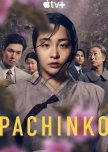
The cast, sets, cinematography, and costumes are all excellent, and each episode feels like a short film in a sense. However, we only got to see part of this big story in this first season. The pace of the story is slow, but the story never seems to drag its feet or lose too much focus on the story it wants to tell us.
How the story moves between periods isn't always too clear, but the show often gives viewers notice of where they are in the story. Even though past and present events certainly mirror each other in certain places and explain the characters and their hidden backstories it does feel a bit choppy at times. But because of this time jumps that the story leaves some of these storylines a bit short or they feel rougher around the edges than one would have liked.
There are also certain characters, moments, or backstories that the story focuses on that are less interesting than others – but there was also a thing I noticed from the book. The story certainly shines brightest when focusing on the perspectives of the women in the story and Sunja, the matriarch, truly has all my heart. How much these women fought for their family's survival even though their lives suffered is breathtaking and it makes sense for the show to not beautify those things too much since they're based on real events.
Both the book and the episodes tell a story that is rather realistically depressing, but not necessarily in a totally crude or bleak way. It's a story about endurance and finding a way to thrive despite everything, and it certainly works for every tear the show squeezes out of you – and oh boy, where there are lots of tears. There really is not a big happy ending for any of the characters, they just have to keep fighting for their lives and hope that's enough until the end.
This is a great exploration of culture and life, but also the loss of it. The story is quite thought-provoking and poignant, pulling at your heartstrings with its realism and resilience of the characters, allowing the audience to confront the reality these characters live in. The scope of the story is epic, although the story manages to feel intimate and personal. This season successfully gives the viewer a pretty open ending to the story just in case there is no follow-up and the story doesn't get another season, despite having so much more to say.
Was this review helpful to you?
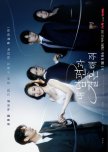
I’ve fallen a bit out of drama romcoms over the years – in the past it was the genre that I watched the most but now it’s sageuks. But despite that, I’ve enjoyed Park Min Young in romcoms so often over the years, and her warm and easygoing on-screen demeanor tends to draw me well into the characters she’s portraying.
Marry My Husband focuses largely on her character, Kang Ji Won, and her quest for revenge and a better life that fills her with more passion and hopefully a better ending – which is a very engaging and compelling story to fallow, and I think the drama does a great job of making us feel for her. Even if it goes a little into too much victim complex and the characters tend to be a little too naïve at times.
Many of the secondary characters and their side stories were also very entertaining or interesting – which I think is essential in this kind of office drama. Both the blossoming friendships in the office, but also villains would completely steal the show for me. Some of the characters are horrible people, like Ji Won’s ex-friend and husband, but the drama manages to illustrate well how subtle they are and how they manage to use people. The actors and script made them very interesting to watch while you’re praying for their downfall. They feel like complex, multifaceted characters who can look funny or fascinating on the outside like many abusers are. But even though some of it felt a bit over the top at times.
For some time, it seemed that romance wasn’t a priority in the story, which doesn’t pick up until well around the second half of the drama. But I thought it was a very wise decision while everything else is being set up. It gives the drama time to highlight the emotional abuse Kang Ji Won is dealing with and trying to break away from so she can live. But all these different side stories also give us a little break from the romance that starts to drag on a little towards the end.
To me, romance is actually the weakest part of the drama, and it could just be because I don’t think Yoo Ji Hyuk is a particularly interesting character. I thought he was a little dull and I don’t think Na In Woo is a particularly charming actor on screen. He’s just fine. he’s tall and handsome, yet often he feels like he is just there, like a beautiful blank canvas, for a good majority of the drama. The rest of the cast was doing such a good job with their characters and sometimes made his scenes a little stiff in comparison, for me.
He did slowly start to make sense to me as a person and romantic partner when Ji won started falling for him and you get to fall in love with her – which is what the best romance films tend to do in my opinion. You fall in love with the characters and through the characters. But there were parts where I found his scenes, when no one else was with him, a bit full and just not that interesting. Like his backstory and past felt a bit too much of a kdrama cliché for me.
Overall, I found Marry My Husband a gripping and interesting story full of emotions that was far gloomier than I expected from such a romcom drama. But that didn’t hurt the story at all. There were interesting characters that you could hate and lovable characters you could root for, and a fair number of stakes to make the story exciting. The narrative flows well and doesn’t drag on too much, which is a bit of a bane for many romcom kdrama, especially towards the end, even if it did turn a bit too melodramatic and clichéd at times at times.
What caught my attention most about Marry My Husband was its use of comedy for the villains of drama. We are often made to laugh at them but not with them, and humor is also used to show how they could seem good and fascinating on the surface. It shows their insecurities and inferiority feelings and why they hold on to other people and drag them down because of them, but also how they manage to deceive the people around them. The way Ji Won saw them before she had another chance to live and gain clarity. That and Ji Won’s revenge was what really gripped me all throughout this drama – Ji Won’s on-screen revenge was often a certain cathartic release for the viewer, in a good way.
Was this review helpful to you?
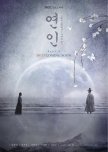
A review of both part 1 and 2
What both stunned and impressed me the most about the kdrama My Dearest, right at the very start, was how focused it was on the ordinary people and how they deal with war. And what the war does to them. It makes it less of a war epic and more of a human tale of self-preservation and hope at a trying time. which I found to be quite a fresh approach to this kind of historical drama, although many will no doubt find it rather slow and dry in its execution and style.The story is ruthless in its realism and harshness with how it seems to paint the world. The narrative is very willing to comment on several aspects within society that it tells it’s tale, the nobility and their uselessness, the lack of care that a certain position within society seems to push into you for the people that live around them, as well as society’s attitude towards women in wartimes and just their position in society both outside of that as well. The way it uses these elements to shape itself, the details it shares throughout the story is very tangible, interesting but also poignant. It is incredibly well thought out and effective within the narrative to stir up further emotions both with the characters and the viewers.
These are not the heroes that poems are sung about, but seem to be more everyday heroes of the common folk. Most of their influence is not great within the grand scheme of things, but it is the people who knew them who will always remember them with kindness and love. They are the ones who will tell the stories about them until they disappear from human memory and are forgotten.
At some point, despite their intelligence and strength, as the war and the hardships seem to tighten more and more around them, the characters seem to wear down a bit. But they never lose who they are, their will to fight but how they go about fighting, how they deal with situations changes a little. All that happens very slowly and works very realistically within the story. It’s a really well-handled look at character, as well as how normal people deal with such situations.
The characters do feel sharp and manage to be both a fresh take on the traditional characters that we get in a Korean historical dramas, but at the same time they have quite a bit of the characteristics that we are used to seeing; Jang-hyun may come across as smug and aloof, and Gil-chae may come across as snobbish and somewhat self-interested. But there’s a lot more to them and their flaws are very presant within the story. Overall there are plenty of multi-layered characters that make My Dearest a rather worthwhile and heart-wrenching watch. Everyone has something to say in their own way and all have some point to emphasize within the story. The story touches your heart from beginning to end if people just allow themselves to enter this cruel, realistic world with these characters as a guiding light.
The plot itself goes through its ups and downs, and it does hit a bit of a lull within the second half where the story tends to repeat itself quite often. Characters almost miss each other a few times over the course of few episodes in order to create tension and longing within the viewers, and since the story is already slow by nature it might make some people really struggle. It makes it seem like the story has lost steam and doesn’t really pick up fully until right near the end. But if the characters manage to grab you and make you completely fall for them in the first half of the story, it’s perfectly tolerable.
The story never seems to fall into being too epic or too grandiose in its approach to the narrative, as some costume dramas tend to do to make their heroes seem bigger. Much rather My Dearest seems so focused on being realistic and grounded in reality like it has a bit of an obsession with the human spirit and the lengths to which people will go to survive. It run through the very heart of the series. And the love story, which is really successful on its own, reflects that. It’s very slow and down to earth and it’s quite unusual for a kdrama in lots of ways.
The story takes its time, sometimes excessively so, and repeats itself a bit too often, but even if it takes the story a good while it manages to underline every point that the drama set out to make really well. The story always seemed to know what it wanted to say. And the humanity that this series carries with it and manages to reflect within the narrative does make you cry many times. It’s gorgeous, it’s heartwarming and filled with hope for brighter days that is always enveloped by a little bit of sadness.
Was this review helpful to you?

The Uncanny Counter Season 2: Counter Punch
15 people found this review helpful
The plot here is predictable and there is nothing there that adds to the narrative of the first one. There is a lot of room for character development, but the drama doesn’t use its time well at all instead giving us rather silly, fluffy moments between the characters and overall, it just feels rather poorly done. As if the people behind this didn’t really care or didn’t feel like it needed to bother with the plot all that much.
Instead of giving us more time to delve deeper into the characters they give us a cardboard cutout of them and a few romantic moments between some of the characters that are totally cute or sweet but add nothing to the story itself. Nothing that happens really matters. There are no puzzles to solve or mysteries to uncover, backstories to explore (like why the bad guys are bad) which pretty much takes away a lot of tension from the narrative. Everything is easy. There is no real desperation or intensity in the story. The struggles they had that made them interesting in the first season are no longer there. There is no battle going on here.
Many of the characters don’t work the same as before and neither do their superpowers. The character who struggled in the first season doesn’t struggle now. So Moon seems almost invincible and way too rugged and cold when he was the soft heart of the story last season. He doesn’t even feel like the main character here or the sensitive as the heart of the series and we are not following him learning more about his powers. But there was still no decent successor to him to fill that main character, fish-out-of-water role so the story has no anchor or focus.
Our characters have nothing much to do but try to fight some very dull and colorless bad guys. They are not being given time to grow organically so they will change with the narrative. They have changed, without us getting to see it as it all happened off screen between the two seasons, to serve the oh-so-generic, bare-bone plot that this new series has to offer.
While the plot of the first series felt like a story that has been retread a little too often, it also managed to find some fresh and exciting angles on the very common underdog superhero story with some good tension and humor along with a great lovable cast and characters. And although the actors and characters are still lovely, the story here doesn’t really nothing to say here. Not about human greed or corruption or humanity. At least not in an exciting new way. Everything is a little too simple or convenient to hit it’s mark properly.
On the surface, the series is cool, flashy, with funny moments and some really cool special effects and fight scenes, but that was never really what made The Uncanny Counters, or any sci-fi for the matter show fun to watch. People may start watching genre shows for the setting; dragons, swords, superpowers and all that but people keep watching for the plot and the characters. The character struggles, seeing those less fortunate stand up for something bigger than them, people coming together and working together using their powers makes for an exciting narrative and hopefully a good story. It’s so much more than just some superpowers. The previous series seemed to understand that, but this feels very much surface level to its approach to a story.
This series seems rather dull. The story is missing something and both the old characters and the new ones we are meeting do not have the same charm and depth as in the previous season. There isn’t really any story going on, very little momentum or character moments that move the story forward. It just sort of tugs along. Everything is too easy, too predictable and there is very little real conflict going on, apart from cool fight scenes, or characters growth which makes it really boring to watch because nothing really happens. Or matter. There is nothing about season two that stays with you after watching it. If you have nothing to add to a story, don’t make season two.
Was this review helpful to you?

The series is mostly a murder mystery that intertwines evil spirits and other horrors into its narrative, which is not so different from many other horror-kdrama I’ve watched. The plot builds the tension within the narrative rather well, and each episode usually ends in such a way that you have to see the next one as soon as possible, but it does have a bit of a pacing issue.
The story works more like a mystery than a horror story in my opinion, but the evil spirits and the Korean folklore about such spirits and shamanism is used in an interesting (but perhaps familiar way if you’ve watched many such dramas) as such a tool to communicate moral questions about society, as well as the weaknesses and behavior of the characters to the viewer, like horror stories of this nature do. That’s the purpose of the horror.
For a while it seems like the story goes in a few too many circles with the main characters’ quest to get rid of these evil spirit, and the narrative loses a bit of momentum towards the middle. There is a lot of repetition and too little progress whether it was in the story itself or the characters own personal arcs, even though we are always learning more and more about these evil spirits and the past that explains the present. But towards the end the story does pick up the pace again.
There are plenty of great, interesting characters here, and of course Kim Tae Ri, like the other actors, is doing a great job in their roles but the drama struggles to give all of them time to tell their story while managing to keep a good flow to the story. There were almost too many character and it breaks the flow. The story affects the characters, but the characters don’t affect the story too much. Therefor the story overwhelms the character a little.
In some instances the narrative does seem to drag things out just because they need to fill the time with something. I’ve seen this screenwriter do horror very well before, as well as murder mystery, but mixing the two together seems to have been a struggle at times. Perhaps if the drama had been allowed to be longer, it wouldn’t have felt like it was holding too many balls in the air at once and allowed the story to breath a bit more or add more things in so it felt less repetitive.
An exciting story that allows the story to unfold through the characters and their actions, but ends up dragging them a bit unhesitatingly forward for the sake of the narrative. There is always something hooking you within each episode, but the build up between each cliff-hanger could have been better in some places. It makes the narrative a bit uneven, and I personally would have liked more horror. But overall a very entertaining watch despite the hiccups in the narrative structure.
Was this review helpful to you?
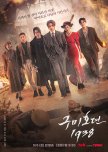
There’s really no real need to watch the first series before this one, because it’s kind of a self-contained prequel and the one does not really affect the other. Some of the characters here seem to have the character development and dynamics between each other we had arrived upon after all the events of the first series though.
There is such an inconstant, slightly odd characterization going on sometimes which is is jarring at first, but you quickly learn to ignore it or not think much of it because this series is just made to be fun. It’s for the people who want a light, fun and fluffy drama with Kim Bum and Lee Dong Wook. The story is just made to be very entertaining.
Still, some things in this drama does go against what we’ve learned in the previous series or just ignores it because a lot of the stuff that happened there doesn’t really affect things here all that much, but does explain some things at the same time. It’s wildly inconsistent, Like Lee Rang at the end of this series isn’t really the same character that we meet at the start of the first one. One should not need to use too much brainpower while enjoying this show, because the show is wildly enjoyable.
The story has a strong tendency to go into fan service - just giving the fans what they liked the most in the previous series although does not necessarily serve the story and are serves a bit like a filler for the large cracks in the story itself. But it does also gave us more action, humor and scenes between the brothers that were some of the best parts of the first series. But it does feel a bit like this drama is very style over substance, quantity over quality.
The romance is much more in the background in this series, but I actually enjoyed it a lot more here than in the previous series. Because the characters that the romances are about are just more interesting and they don’t dominate the whole story as much. There is a better buildup to it and it never feels like some overwhelming YA subternatural romance. I found this one more grounded and intense.
And while I could talk about the cast and entertainment value of the shows for a long while, I will always come back to the shows main problem and that is the overall story is pretty weak. It’s not exactly a drama you’re going to watch for the clever, deep or logical writing. You’re just there for the character really. And drama knows and reflects that. It knows it’s audience so well.
The story and the whole atmosphere of the episodes is rather light-hearted. And really, I wish the story had allowed itself a little more depth and darkness within itself. Going a little deeper into all of the characters, reflecting on the past and the present and maybe more contrast between the two, as well as the Japanese occupation within Korean history.
It’s strange to have that as a setting and then try to keep it so light and fun. At times it tries to go a bit deeper, but it still never goes all the way. It just tips the toes in (and one kind of wonders why this period was chosen, because I can’t really see a point to it when it comes to the plot). The only thing that it allowed itself to do more in this historical setting is play around more with the mythology and the lore of the show, which was cool. But I wanted more.
Aside from the romance and the complicated relationship between the brothers and just further character exploration of Lee Rang’s tragic backstory (Kim Bum is the true star of this show and Lee Yeon, the older brothers, takes a bit of a backseat when it comes to story and character development) there isn’t much of an actual story that ties things altogether or let the story end with a particular point or saying too much.
It’s sort of a very slow character-driven story, if you want to look at it that way, with a very loose and meandering plot. It’s almost as if the writers felt like they had already done all the plotting in the previous series so here they just wanted to entertain us with the characters and let the actors do their thing.
Tale of the Nine Tailed was more fun and had more things that I personally liked than the first series. The romance didn’t overpower the whole story and we got more character moments of the people I cared about, there was more myths and lore to everything and the historical period was fun to look at, even if it lacked depth. The main core of the story it wasn’t as solid or well shaped as it could have been. I’m having a bit of a hard time figuring out what Tale of the Nine Tailed 1938 is really, truly about. But the entertainment value was there the whole time.
Was this review helpful to you?

I’ve been going through a bit of a long dry spell when it comes to kdramas for the last year or so, and I don’t exactly want to say that The Heavenly Idol cured it, but even as stupid and silly as this drama was I was always excited to watch the next episode. I looked forward to Wednesdays and Thursdays, because that meant the next episodes of The Heavenly Idol were about to come out, and I was going to have a lot of fun with it. And I have to give the drama some points for that. That’s how tv should be, in a way.
The Heavenly Idol doesn’t shy away from its ridiculous premise. In fact, it seems to just drive straight into the ridiculousness at full speed. It’s so silly and it knows it. And more importantly the drama seems to enjoy it, and I enjoyed that, even if it doesn’t make a whole lot of sense sometimes. But it will make you laugh and smile and feel for the characters. And that’s something.
There’s a certain simplicity and softness and gentleness to the male lead that we don’t get to see in a lot of kdramas, which I found refreshing and really charming. There seems to be a genuine friendship between some of the characters throughout this bumbling, odd plot that is just full of plot-holes and it’s almost like this story has just no sense of time. Things just happen, there is a different variety shows that the main character is on every other episode and things are not explained well enough, and you just have to take it as it is. It doesn’t really have a pacing issue, just a direction issue almost.
But then there is also this sincere attempt at theme with it’s critique of the kpop idol industry as a certain idol worship of these idols by fans with like gifts and such that the main character gains his powers from these odd tributes to him and other idols around him. It’s all a bit hastily done and I would have love to see it go deeper, but still does the job that it’s meant to do.
I do always appreciate sincerity in stories, and I love stories that even if they are not the best they feel like they, or the people behind them, are aware that they’re not that good but there is just a lot of heart put into it to bring people entertainment. I actually find it very charming, but I also love the silly but sincere stories. They are fun, if done right.
This drama is small, it’s low-key and doesn’t feel like it has a lot of money behind it. It’s not trying to be anything other than it is; a fanfiction on steroids. The characters are fun and sincere, but also so incredibly exaggerated. The plot makes no sense; things just happen that way because things have to work out somehow for whatever plot reasons there is. It just takes you on a mindless spectacle every week, which is just good entertainment if you are in the mood for that.
There’s a lot going on in this little drama, and I’m not so sure it managed to really do all the random narratives it threw at us justice, or built up the romance that wasn’t needed in this drama, but also why it feels like a self-insert fanfiction. But this was still something that was just pure entertainment. It was serving fun. At least in my livingroom. And sometimes that’s just enough. Sometimes that’s all you need. Something brainless and fun.
Was this review helpful to you?

This is an true slice-of-life Japanese drama, which is actually a certain type of story that Japan has developed over the years through formats like anime and manga where this type of story doesn’t necessarily have it’s origins there, but seems to be a very popular way of telling a story. And this drama is only nine episodes so time flies by while watching it.
The Makanai has a somewhat random storyline, although each character actually gets their own part of the narrative as they are followed through the day, but all the stories are a bit without a plot, or a big conflict that the character necessarily has to solve. It’s about the character and their life and dreams, but there’s no specific goal with the stories in particular. They just are. And in the end everyone gets together, people are friends and enjoys the food and their connection to the food that is served them.
The food in the series has its own meaning to the lives of the characters, whether it evokes memories or soothes them in some ways, gives them a warm hug and perhaps a little the importance of tradition, but also the conflicts that some traditions have with modern times. But this is always told without specific answers for the character. They are just there pondering these things while the narrative slowly passes us by.
This quiet narrative style isn’t for everyone, and many would without doubt want there to be more of a purpose to the story, or more tension and feel that our time with the characters doesn’t provide enough immersion. In general some might want or yearn for more story, but in my opinion this was just enough. The characters are all alive and doing their own thing. That cozy, easy-going feel is kind of the point of the story and this slice-of-life style of telling a story. It’s okay to just be cozy and enjoy good food in the hustle and bustle of everything.
Not everything needs tension. It doesn’t all have to be high-stake drama or action. And this sweet little story just lets you do take things easy and just be present, in a way. To be with these people, even if it’s just for a little bit. Not all TV content has to be big and bold. There is plenty of room for this kind of calmness too. The only downside that I can really point out about the shows is that it’s really impossible to watch these episodes without something to snack on, or stopping to google all these different recipes, because it’s all very appetizing and delicious to look at.
Was this review helpful to you?

Under the Queens Umbrella seems to have got this mostly right with some lighthearted quirks thrown in there to keep the tone never too heavy or dark. The tension and emotional beat of the story is never too high or too low most of the time, but just moderate. I would have really liked to see more humor with maybe a bit of a darker side to it, but that’s just me.
Although I think the tone of Under the Queens Umbrella is fun and the un-seriousness that is present within the story works well there is still a good amount of dramatics and intensity there as well. There is a balance to it that the drama achieves really well. The tone is never too hasty or inappropriate, but flows well with the scenes each time.
I would personally not call this drama a satire or a comedy with a gloomy undertone, which is what I thought the drama advertised itself as, but more just a light-hearted approach to palace life and the world there as well as the status of the women in there. A theme that has come up in various historical kdramas in recent years. But it’s a take that I enjoy quite a lot.
The plot is a little predictable at time, especially if you are very familiar with these kind of historical dramas. It knocks a bit of a wind from the story, especially towards the middle, and there never seems to be any particular point that the story truly gets at, or leads us to. The plot doesn’t truly matter; its all about the characters and how are they handling these obstacles that the plot provides.
Many of the characters are well written and interesting and I’m talking especially about the female characters in the drama (because most of the princes blend into one for me) who pull you in so you don’t really think too much about the actual plot but just how interesting they are. The cast is awesome. It’s like one big empire of great female character and there’s a nice contrast between them all, with a few other interesting characters in between.
But the main and most interesting characters are the queen herself, the concubines that wants to be queen and the queen dowager for me. And sometimes when the story moves away from their story, the central story, it became less interesting. They are the ones who are playing the main game in the story after all and shine the most. I would liked to see a little more intensity and depth from the women who work under them. I don’t think this story gets me as well as e.g. The Red Sleeve when it comes to this power struggle within the male-dominated palace in a very male dominating society.
I really didn’t care about some of the side stories about who will be the crown prince and everything else that the narrative brought, but it almost didn’t matter that much because I was enjoying the characters and their moments so much. This was a slow-burn character study to me. The goal of the story was to allow the characters to shine and not be pulled by the story, but to control the flow.
I just liked seeing these actresses being great at what they do, in these kinds of roles and this kind of environment.
Some stories are really driven by plot twists and fast-paced narratives, while others let the characters just pace the story themselves and have their movements. The Queens Umbrella is very much the latter of those stories, to me at least, and for the most part it succeeds in that. Although in The Queens Umbrella has perhaps a little too many supporting characters that perhaps distract a bit from the storylines of some of the more interesting characters.
Was this review helpful to you?
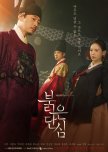
Due to the strong emphasis on the emotional weight that the palace has on people, slow-moving personal stories and politics within Bloody Heart, the drama isn't big or that epic in scope. It feels somber and sad, which fit's the vibe of th story it's trying to tell and even the romance is too ingrained in politics to seem like a sweeping love story in my opinion, but it works for this story. It feels like it has a strong identity within itself. The story isn't that big, but it doesn't need to be.
I often did not feel too emotionally attached to it, at least not in the beginning, but I still enjoyed the strategies of the plot and the way the characters' movement was woven into the palace's political and the power struggle. It was never very predictable, none of the plot elements came out of nowhere, because the story managed to set everything up really well. And I personally did not necessarily feel like a lack of emotional bond hurt my enjoyment of the story. I just felt like it fitted with this highly dramatic, tragic style of the drama in a way.
The character don't feel standard or bland. They have such an atmosphere around them that you do not want to connect with them too much emotionally, otherwise you will hurt yourself along with them. But still, I would not say that the drama is devoid of emotion. I think the drama has a certain emotional, cathartic effect on a person, as tragedy often has, and the story takes you along with it and won't let go, into a gloomy world. Although it might feel sometimes, especially at first, as you are watching this all from a distance. But still you hold your breath, gasp or smile over every little plot twist that comes your way and the well-executed political maneuverings of the characters.
Bloody Heart is subtly terrifying. Everything sort of lingers in the shadows and the drama does a wonderful job conveying that through imagery and not totally info dumping in on your or just feeding you backstory. It’s simply stunning. There is a certain darkness all around the story, the loneliness that comes with the palace life and the greed for power that is there. A life where you can never fully trust anyone.
It's bloody, as the title of the drama suggests, but it's never too rough or gritty just for the sake of driving the message of the darkness of the world to the viewer, or for shock factor. This is a true tragedy and that's what it feels like it's trying to be. There is no war, or particularly bloody battles. And even if there is one, it does not seem to be the center or the end of the story. Like a bloody heart, the conflict is just as much on the inside than it is outside, because so much of the story is just in the careful maneuverings of the characters, most of whom are complex and noble, in their own way.
So much of this drama is just people are walking very seriously up and down corridors of the palace, staring sadly into the distance, and sitting together in dark rooms plotting things. The obstacles that the characters face come just as much from within. And so the external story reflects the inner life of the characters. There is a slow rise to the drama doesn't feel the need to inflate the tension of the story to more than those elements; the life they want to lead and what they need to do to get there.
Everything in Bloody Heart feels like it was done with such purpose and intentionally. Every character moment, every plot twist. There is a good rhythm in the story. There is no frame or scene that seems to go to waste. It may feel as if some scenes are repeated too often, or many similar things happen as one character betrays another and so on, but each scene still seems to be to drive some specific point, which the story is trying to say, home. It is done for emphasis. And each frame of the drama is just masterfully well shot. Absolute eye-candy.
I can see why the story comes to that conclusion for every single character and their demise. Nothing is out of the blue. You can see why each character faces their fate as they did, because the story has set it up so, and shown you why. It all depends on the actions of the characters, every minor thing has a snowball effect on everything around them, even if it is justified, and it results in disaster. Everyone is stuck in a game of power that they can not stop playing, because then they would lose everything. Bloody Heart uses those elements of tragedy very well, in a elaborated story about a power struggle with flawed, morally-gray characters. And it was a pleasure to watch.
Was this review helpful to you?
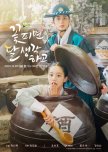
This drama does spend a whole lot of time telling us things, rather than showing it to us. Both with the romance and the mystery, which goes in too many circles and consequently loses its tension after a while. It does ramp up again in the second half, but by then a whole lot of people will have lost interest in it because the buildup wasn’t there.
It all comes down to how difficult it is for the drama to make up its mind whether it wants to be a romantic comedy set in the Joseon era or more of a mystery about a young policeman who chases after people who break the law and the people who get in his way and complicate the whole matter. And the story never really manages to combine the two into one solid story no matter what it tries.
The structure of neither of those plot points is strong enough for it to work properly because the buildup wasn’t there, and there is a lack of balance between all these different elements of the story as well.
The plot seems too rushed at times; it never really stops long enough to explore things or build them up enough for it to hook you in. There is a lot of tell, and not enough showing us things. Showing us the main couple falling in love for example. Things just happen because they are supposed to happen. But at the same time, the story drags its feet so much and the plot and the character go in so many circles - which is a shame because the cast is great, but not used all that well within the story.
It’s Ro Seo who manages to shine the most in this drama and her character manages to be the heart of the story someone you can really root for. Hyeri is so likeable here. And if the story had been built solely around her, we might have gotten a better story. But it is Nam Young and his story halts the story so much. He is only there because Ro Seo needs some contradiction to her character and her story, but he does not get enough to do so that it has a strong enough impact on the story. His character hardly matters in the grand scheme of things.
This role insufficiently used Yoo Seung Ho, one of South Korea’s most talented actors in his age range, which is a damn shame. And while Yoo Seung Ho uses all his charisma and puts as many emotions and empathy into Nam Young as he can muster, the writing does not match his energy, so no matter what he does, Nam Young feels flat as a character. Which is frustrating to watch. He is a plot-point, not a solid character who influences the story itself. Most of the story he is just there.
Moonshine falls into the same pit that I think many period dramas like it fall into and that is to put too much emphasis on the palace politics and the royal family and uses it as a crutch or a tool to carry the story forward or build suspense - like the evil mother-in-law is used in rom-cos to add drama and stakes to the story and the romance. And it doesn’t really work. There is a certain skill that needs to make that work within a story, and it must be used with a purpose, or it becomes so dull. And many of these lighter period dramas, like Moonshine, don’t know how to utilize it. To me it comes off as a possible lack of courage in the story itself from the writer.
There is a lack of stability or focus in the story, especially towards the middle, which improves slightly as we get towards the end, but the story never really allows the moments to linger (and therefor there is a lack of buildup) and often seems too hasty so it comes across that the characters move with the story, but not the other way around. Things just need to happen. Therefore the tension in the narrative isn't really there.
Moonshine is an overall drama with lots of potential, but with such an aimless narrative that hesitates to take risks and break away from the norms of its genre, with crown princes, palace politics and forbidden love between classes etc. It leaves the mystery of the story in the dust and therefore the structure of the story, some of the character and many of the side-plots feel rather flat and they lack a little focus and depth. The drama wanted to do too much, but at the same time too little, with the time it took to tell this story. I cannot say that I was bored watching the drama, but rather that I was frustrated by the wasted potential of it all. The cast carried the drama through for me.
Was this review helpful to you?
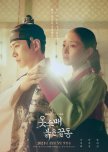
This review may contain spoilers
One of the more impressive historical dramas that has come from Korea in recent years. Masterfully made, with great actors and a much more serious tone than many of these new historical dramas that are a bit fluffier and lighter, and often feel a bit timid to go all the way with its political plot which often makes the story loses some momentum and make the tension of the story feel artificial and contrived. This drama, however, manages all of that extremely well. One can tell why it is one of the most popular historical dramas from Korea for a long time.The Red Sleeve feels serious, bold but still not too dry, so it was no fun to watch. It had a good pace to the story, and I liked the darker undertone that was always present within the narrative. Despite a more serious approach at the palace politics but still achieve a certain lightness in other aspects of the show, without those two things working too much against each other. There was a good balance between the characters arcs, the palace politics, the more romantic moments, the serious and the light.
did a really good job painting this picture of loneliness within the palace and show it as this dazzling but ghostly prison for all the female characters in the show; highborn or not. Especially as we went further into the story. The loneliness of the palace does affect all the character in some way or another and becomes a big theme within the story. It has a good emphasis on how the female characters play a special role within the narrative. To me the main character, Deok Im, never wanted to be anything but free within the limits of the society she is born in, and the story always comes back to that very point. She is always true to herself while putting other before her.
All her life she seems to try her best to be loyal to those who are good to her but closed off to people around her, but especially to the prince who has such great affection for her, to avoid feeling trapped by this life that she has. Because when you become his concubine, there is a certain world that is just closed to you. It’s not really until she’s cornered, and she sees no other way that she finally gives in to his affections. , even if she loved him, and becomes that concubine that she is destined to be. And I think it was the purpose of the story that Deok Im really had no choice but to be his wife in the end, although it was a little frustrating that he liked her more than she liked him.
The romance, as much as I liked it in the beginning, lost it’s my grip towards the end because I felt Yi San insisted too much that he owned Deok Im, and seemed a little too domineering to me. But at the same time, I feel like it was very much part of the realism that this show seemed to convey. This is not a romantic comedy or a teenage love story. The story, all the way through, is describing the harsh reality of the palace, which was something I really appreciated (and it managed that without being too gory or grim for the sake of realism like Game of Thrones for example).
It is a bit bold to present the love story of the drama in such a way and having the prince carry far more feelings for Deok Im than she seems to do for him, or it can be interpreted in that way at least, rather than showing a more of balance between their feelings. But the writing was done with such sincerity and great sensitivity, and the same can be said about the character, that I felt I understood the position of all of them, although I did not always agree with them.
But even though the themes and characters of The Red Sleeve were brilliant, I found the story start to go in small circles towards the end and drag unnecessarily in certain sections as the story goes on a bit about the same thing. But I cannot blame the scriptwriters of the drama too much for that, as the drama got an extension due to their popularity and it can be hard to add new things to fill over an hour of content with something new. And it didn’t hurt the story that much overall. The end result was still the same.
Deok Im as well as pretty much all the female characters in the drama have my whole heart. They were all so deep, varied in characters and thought and had their own stories to tell. And too me they were the focal point of this story. And the bitter-sweet ending works wonderfully well for the story that this drama was trying to tell. Anything else would have taken from the realism of the story.
Was this review helpful to you?

This review may contain spoilers
Yumi’s Cell is the first Korean drama to blend in animation into the drama in such a intrinsic way. You can seen that there is a lot of work behind it and these little animated figures do a lot for the story and make it stand out from other dramas. The story really come to life because of them.The drama manages to bridge the gap between rom-com and more slice-of-life drama in my opinion. To me it has this calm and gentle focus the characters’ everyday lives that never feels too dramatic or unnatural, aside from the animated characters that bring out the more cute and comedic side of the story.
the cells that bring the humor (and are often my favorite parts of each episode) while the other characters get to be much more down-to-earth. It still has some those characters that you often find in traditional rom-coms but it manages to undermine some of these tropes and make it refreshing to watch. You can really just sit back and relax while watching the episodes.
Some of the side characters do not feel as complex, which may because we do not get to see the cells of all of them work like Yumi or Gu Woong who are in the leads and perhaps the drama relays a little too much on those cell characters to understand the nuances of the characters. But when it does the drama does a good job of showing all the little twists and turns of communication that Yumi or Gu Woong encounter, whether you agree with them or not, because you see the thoughts behind them.
The cells are a key factor in this and often make you look at things from a different perspective. The story really seems to stand by it’s characters though and allows them to be unlikeable when needs be, and also gives us a good lgbt representative (although he does not appear as often as I would like him to do) as kdrams do not do that often.
The pacing a bit unconventional and the story focuses a lot on communication and misunderstanding when Yumi steps back into the dating world after many years of closing her heart and the mistakes that come with that as a result. And I thought it managed to bring that theme it pretty well to the forefront without dragging the plot or making it too dramatic. The story always seems rather mild and light in my opinion. There was a certain calm over the story no matter what happened.
I found Yumi’s Cell to be quite sweet, warm and funny drama to watch. It is missing a key element that I like in kdramas, which is that the story hasn’t ended yet because we are only at the end of season one. I personally really enjoy kdramas because we get a beginning, middle and a end in about 16 episode. It’s one of their charms. There is so many shows that drag the plot and the tension until most of everything you enjoyed about the series is no longer there. But I’m excited to see how Yumi’s Cells handle this multiple season format. The drama is sweet and stands out from other dramas and just hope the next series manages to keep them charming and not drag the story out.
Was this review helpful to you?

The story may not be big but it seems to be enough there that the story never drags it’s legs or or goes into endless circles with the plot. It spends a good time with all the characters and the introspection of those characters that takes place within the drama.
Hometown Cha Cha Cha strikes a pretty good balance between having a story that is constantly moving forward while also capturing this mundane life and the quiet moments as we follow all of these different characters and their lives in this small community where everyone knows everyone.
All the characters we meet on our way through the story are interesting and it’s fun to watch them and their impact on each other’s lives. Everyone has their own burdens and baggage’s in life that the drama manages to explore quite well. Watching people’s walls break down over time and people face their demons without it ever dragging too long or being too dramatic.
We get to see the different sides of most of all the characters and how complex and human they are. Each episode of the drama is more than an hour long, which I usually do moan about, but here I hardly felt it. Because I enjoyed the time with the characters so much.
There is almost this subdued suspense that is there all the way through the story. It never get’s too big, too dramatic or too ahead of itself. It captures this feeling that life can be messy but it’s also just a series of moments that pass and fade over time really well. Some moments are wonderful, warm and calm but some cruel and sad. But life still goes on somehow. The message of the story and the story itself is not much bigger than that, but it works really well.
So much of the romance, but also just the friendship that is going on, is just about the individual’s personal boundaries and the communication between them. Everything about how the romance was built radiated comfort and warmth in my opinion, which I found really sweet and just pleasant to watch. Like everything about the drama was. Shin Min Ah and Kim Seon Ho, as well as all the other actors, fill their characters with life and emotions.
There is also a really good balance between the love stories within the drama and the other stories that deal more with people’s personal lives and their position in life. The love story will never be too sappy, which would not suit this type of story, but rather it seem more human and sensible. Even if misunderstandings occur it is quickly worked out and one can understands the reason why the character act a certain way because they story has worked for it. These people are complex and you get to see them from many angles.
The love story is still a very big part of the story; both when it comes to the main characters and the supporting characters. But even though the story is about them falling in love, it is also so much about these characters learning to love themselves as well as the other characters around them. But the drama also deals with loads of different themes such as loneliness in old age, divorce, there is a lgbt character, and many other things that crop up as we go through the lives of the characters of this small town as this is ultimately a story about the community.
Was this review helpful to you?

